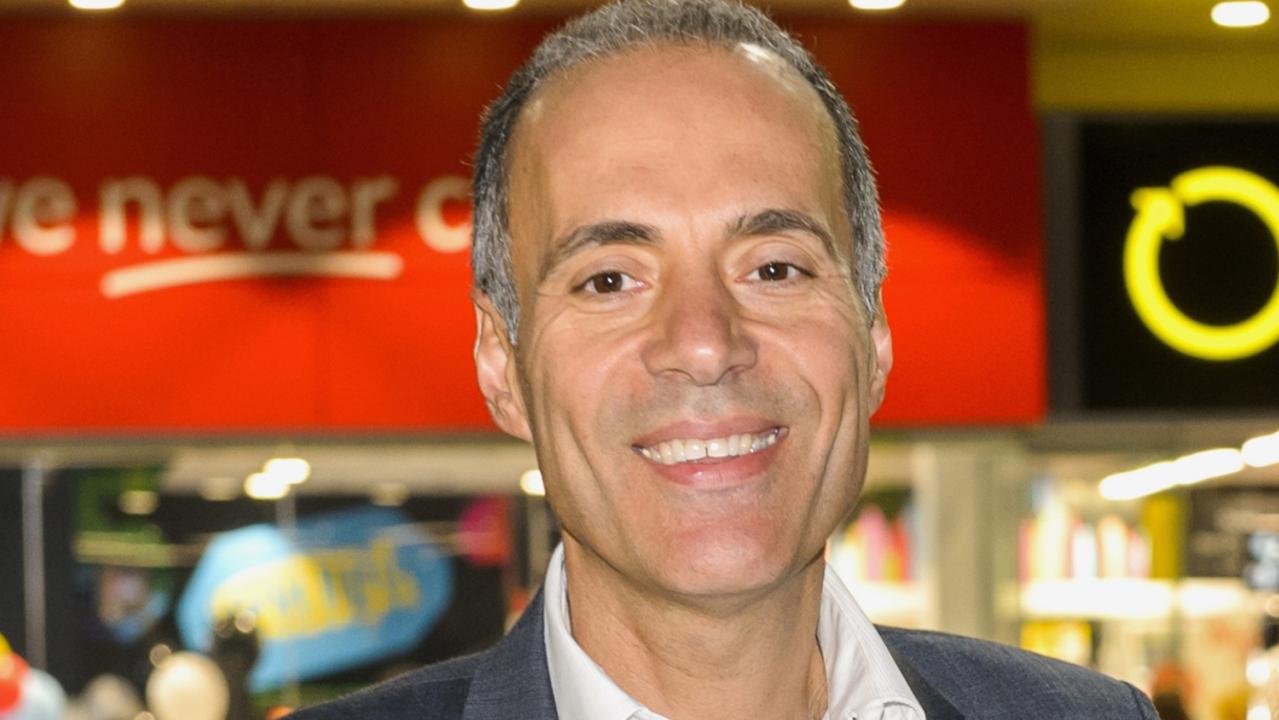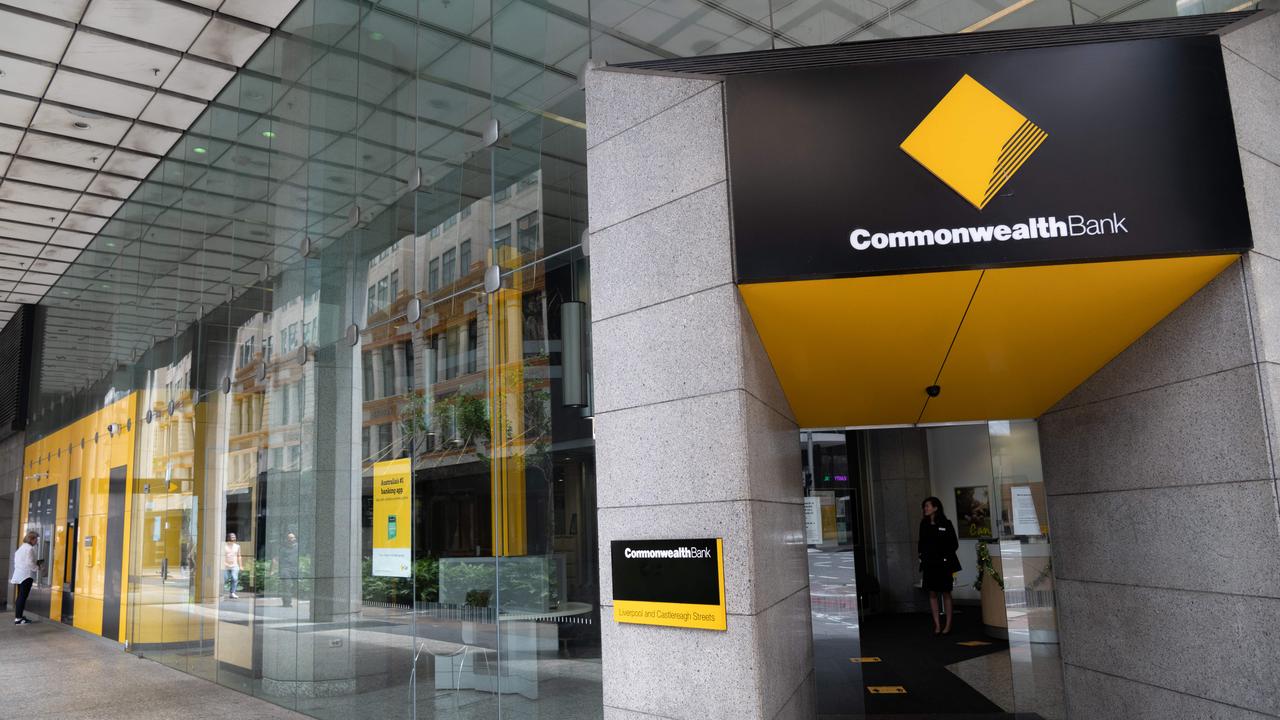Holden plant closure leaves political bickering in its wake
As Holden shuttered the country’s last car assembly plant, politicians maintained their quarrel over who’s to blame.
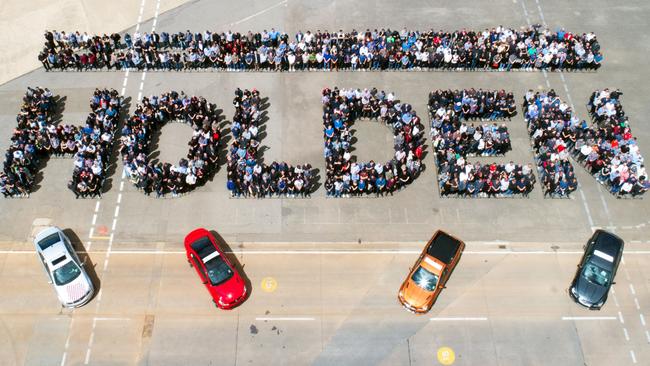
As Holden shuttered the country’s last car assembly plant, sparking emotional scenes yesterday among onlookers and the remaining 955 workers, federal and state politicians maintained their quarrel over who was to blame for the demise of the industry in Australia.
For the likes of Mark Bloomfield, who worked on the general assembly line at the Elizabeth factory in Adelaide’s north for 22 years before clocking off yesterday for the last time, the political bickering over past decisions means little as he faces an uncertain future.
The 50-year-old married father of one joined Holden in his 20s when, as a butcher, he was looking for a career change. After five years he became a team leader and never looked back.
“It’s going to be a lot harder now that I’m 50,” Mr Bloomfield told The Weekend Australian.
He has a job interview next week with a winery, but knows his biggest challenge will be finding a new direction at such a late stage in life.
“I don’t know what I want to do, where I want to go,” he said.
Australian Manufacturing Workers Union state secretary John Camillo, a former Holden employee, warned that although the company had said 85 per cent of the 738 workers who left before yesterday’s closure had transitioned to new jobs, study or retirement, many of those who stayed to the end, especially those older than 50, would struggle.
“History will remember this as the greatest betrayal of blue-collar workers,” he said.
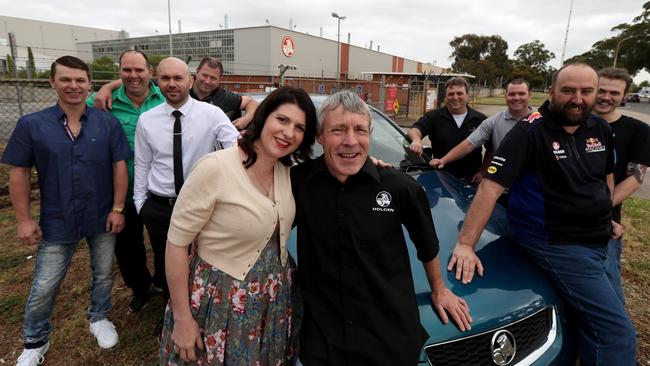
Ford closed its manufacturing operations in Victoria last year and Toyota followed suit earlier this month, while Mitsubishi suffered the same fate in 2008 as Nissan did in 1992. But Holden had long been the dominant force in Australia’s automotive landscape.
Hundreds of Holden tragics gathered outside the Elizabeth factory from early yesterday with their flags and branded shirts, bringing an array of cars from historic FJ models to the latest high-powered utes and V8 sedans.
Welfare groups such as St Vincent de Paul Society have expanded services in Adelaide’s northern suburbs, ready for an escalation in demand.
Mr Bloomfield worked on the last car to roll off the line yesterday, a manual Commodore VFII Redline that will be a part of Holden’s heritage collection.
In its 70-year history of building cars in Australia, Holden has produced more than 7.6 million vehicles, including 2.3 million Commodores.
“The last car has a special meaning and was actually quite emotional ... everyone was waiting for another car to come along, and of course there are no more. It’s the end of an era,” Mr Bloomfield said.
“But it’s hard to assign blame. At the end of the day, you can get the same car overseas cheaper.”
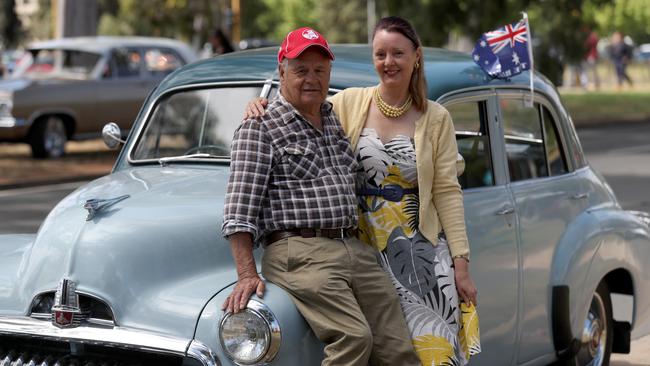
Holden in Australia will now be a sales and marketing arm for imports made by GM operations globally, supported by about 1000 staff, including a 350-strong design and engineering team. A further 6000 people are employed in dealer networks across the country.
While there are no more cars being built in Australia, the political blame game may never end.
South Australian Labor Premier Jay Weatherill said Holden’s decision three years ago to close came after the federal Liberal government “chased them out of the country”.
“I was at the meeting where an offer to stay was made, and that was ignored by the federal government,” he said, noting subsidies for carmakers in every country were “the rules of the game”.
“If you want a car industry, you have to pay for it,” he said.
Mr Weatherill said the impact of Holden’s closure on South Australia “may be an important backdrop” to the state election on March 17.
Flinders University labour market analyst John Spoehr said when indirect workers, such as those involved with transport companies and retail outlets, were factored in to the closure, total job losses would be about 11,000.
“Thousands of well-paid jobs are being lost, intensifying competition for job vacancies in the state,” he said.
Bill Shorten blamed Malcolm Turnbull, but the Prime Minister yesterday said the industry cost taxpayers $1 billion a year in subsidies, and Holden had blamed the high cost of production and a small domestic market for its decision.

